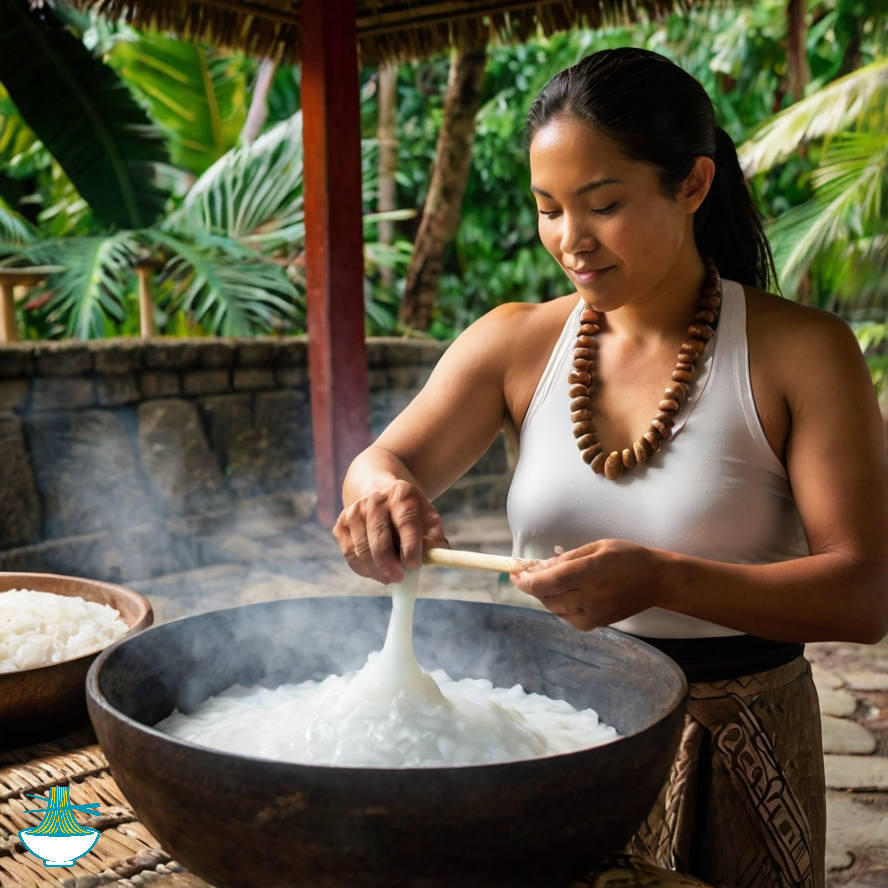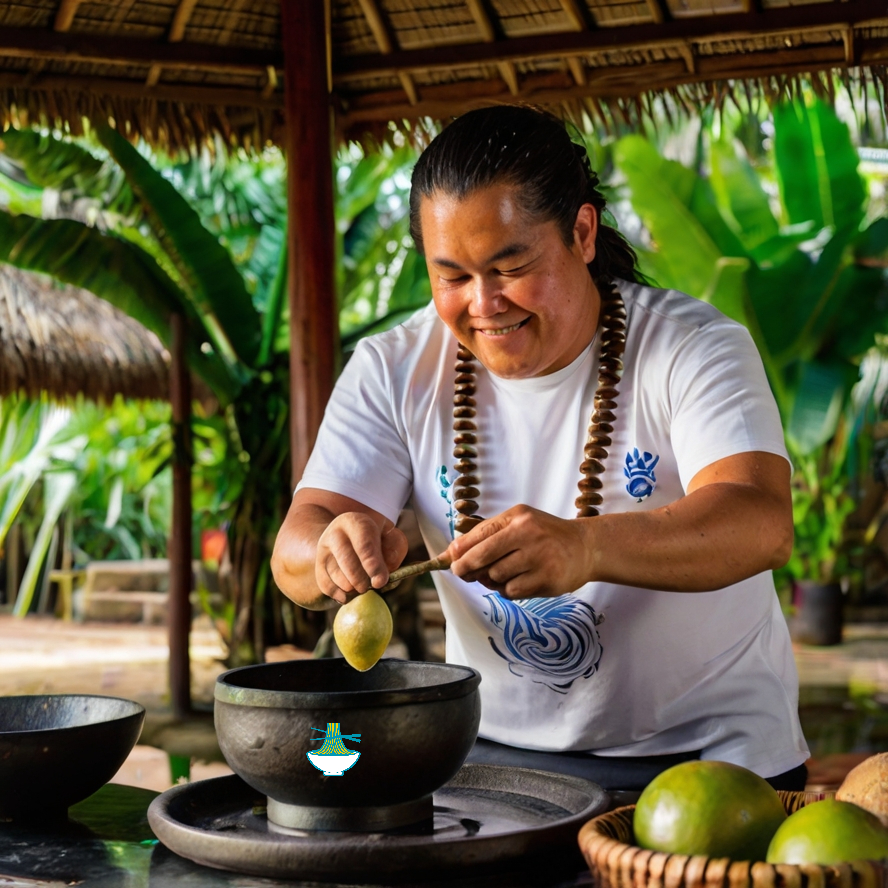Poi or sweet poi , traces its origins back centuries . This traditional dish involves mashing cooked taro or breadfruit with water, resulting in a thick paste .
Originally prepared by indigenous peoples of Polynesia, poi holds cultural significance and is often served at gatherings and celebrations. Its simple yet nutritious ingredients reflect the resourcefulness of Polynesian communities. Today, poi remains a cherished part of Polynesian culinary heritage, offering a taste of tradition and history in every bite.
Ingredients:
- Taro or breadfruit
- Water
Method:
1. Peel and cook the taro or breadfruit until soft.
2. Mash the cooked taro or breadfruit with water until a thick paste forms.
3. Adjust the consistency by adding more water if necessary.
4. Serve the poi immediately or refrigerate for later use.
Nutrition Value:
1. Taro or Breadfruit:
1. Calories: Taro - Approximately 187 calories per cup (132g); Breadfruit - Approximately 227 calories per cup (220g).
2. Carbohydrates: Taro - Around 46 grams per cup (132g); Breadfruit - Approximately 59 grams per cup (220g). Both are rich in complex carbohydrates, providing sustained energy.
3. Protein: Taro - About 2 grams per cup (132g); Breadfruit - Around 2.6 grams per cup (220g). Although not high in protein, they contribute to daily intake.
4. Fat: Taro - Almost no fat, less than 1 gram per cup (132g); Breadfruit - Very low fat content, less than 1 gram per cup (220g).
5. Sodium: Taro - Minimal sodium content, less than 1 mg per cup (132g); Breadfruit - Also low in sodium, less than 2 mg per cup (220g).
6. Cholesterol: Both Taro and Breadfruit are naturally cholesterol-free.
7. Vitamins: Taro - Rich in vitamins C, E, and various B vitamins like B6 and folate; Breadfruit - High in vitamin C and B vitamins, especially B6.
8. Minerals: Taro - Good source of potassium, magnesium, and manganese; Breadfruit - Also high in potassium, magnesium, and manganese.
Nutritional Benefits:
- Both Taro and Breadfruit are excellent sources of energy due to their high carbohydrate content, making them suitable for sustaining physical activity.
- They are low in fat and cholesterol, which is beneficial for heart health.
- Rich in vitamins and minerals, they support various bodily functions, including metabolism, immunity, and nerve function.
- High fiber content aids in digestion and promotes a healthy gut.
- Potassium content helps regulate blood pressure and maintain fluid balance in the body.
2. Water:
1. Calories: Water has no caloric content.
2. Carbohydrates: Water contains no carbohydrates.
3. Protein: Water contains no protein.
4. Fat: Water contains no fat.
5. Sodium: Depending on the source, plain water contains no sodium or only trace amounts.
6. Cholesterol: Water is naturally cholesterol-free.
7. Vitamins: While water itself doesn't contain vitamins, it's essential for the absorption and transportation of water-soluble vitamins in the body.
8. Minerals: Tap water may contain minerals like calcium, magnesium, and fluoride, depending on its source and treatment process.
Nutritional Benefit:
- Water is vital for hydration, regulating body temperature, transporting nutrients and oxygen to cells, and removing waste products.
- It supports overall health and well-being, including skin health, cognitive function, and kidney function.
- Drinking an adequate amount of water helps maintain proper bodily functions and prevents dehydration.


Comments